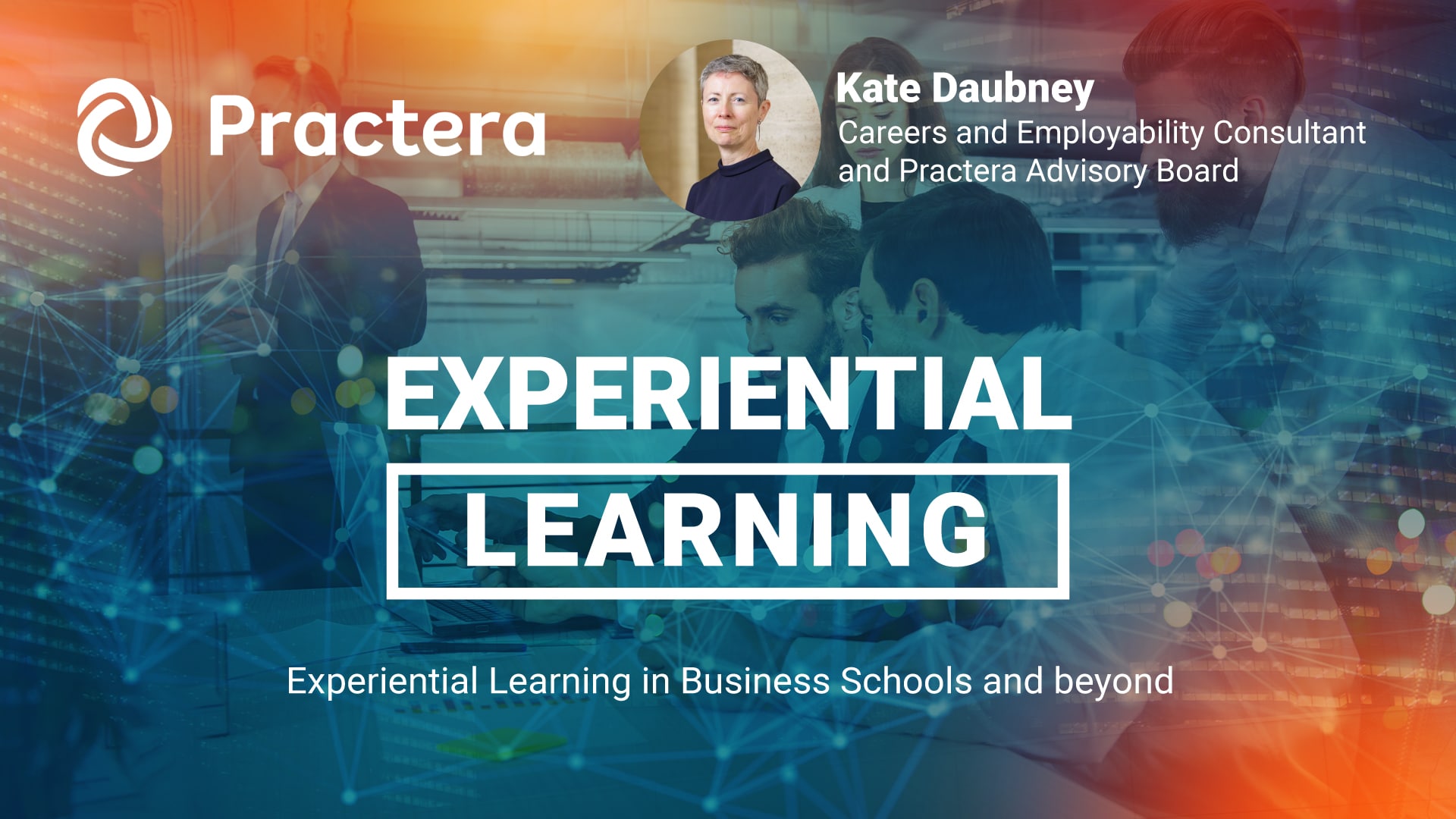Experiential Learning in Business Schools and beyond
Fusion skills are key…
Kate Ross drew together a number of perspectives on the skills conversation, from whether Excel is essential for everyone to what a top five desired transferable skillsets might actually be. One of her key points built on findings from a City of London/NESTA report on transferable skills (2019) that proposed the concept of ‘fusion skills’: the combination of technical skills and transferable skills that enables the “merging and blending of skills and industries…[which are] key components of the current and changing labour market” (p.7).
This resonated very strongly with colleagues at the round table, not least because of the role of EL in enabling students to explore and apply both technical and transferable skills. For students on Business School programmes, industry-aligned EL within their programme is often the first time they have had the opportunity to explore this skills development in a ‘safe place’ which is important no matter what sector or role they end up in.
Indeed, for some students, ‘fusion’ might also refer to the application of existing skills while acquiring new ones, and EL can be an essential space where that happens. Which leads to another really important point that Kate made: that…
…telling your story as a graduate has never been more important.
Institute of Student Employers survey data tells us annually that self-awareness is an essential attribute which graduate recruiters seek, but telling a story goes beyond being able to articulate what you can do. Kate noted higher education’s enduring resistance to the responsibility for teaching graduates how to work, but education is all about reflection and universities do have a fundamental role to play in ensuring that their graduates are not just knowledgeable and skilled, but also reflective too.
It was inspiring at the round table to hear so many examples of how colleagues are embedding reflective learning into their programmes. So ‘telling the story’ in skill development terms is about recognising and articulating the stages, from identifying what skills are involved and whether you have them, to recognising that you have developed them and can apply them and, crucially, that you understand why an employer needs them.
The graduate story isn’t just about career decision-making therefore; it’s about contextualizing the learning and development journey that takes place into the goals that the employer has for their future employees. That is an innately academic journey too.

Balancing external expectations
A particularly interesting feature of our round table discussion centred on the roles of both employers and Professional, Statutory and Regulatory Bodies (PSRBs) in collaborating with and shaping degree programmes and learning and skill development outcomes. The high levels of industry collaboration in Business Schools means that they are often particularly impacted by these two communities, which may at times also be in tension with each other.
This is not surprising, and it has some implications for EL: we could see PSRBs as representing an idealised representation of sectoral expectations, while we know that each employer will bring their own nuanced perspective.
A good example of such a difference would be in a skill like leadership: leadership competencies are often a key part of sectoral frameworks, but the reality on the ground increasingly represents distributed leadership and flattened hierarchies.
A student project with an industry client might be a great introduction to the experience of distributed leadership, but that may not resonate strongly with a more fixed statement on leadership from a professional body.
Embedding inclusion in EL
There was universal enthusiasm and agreement that whatever form EL takes, it must be inclusive. Embedding EL in core curriculum is the most efficient way to ensure that all students have access to and don’t self-select out of doing EL, but ensuring EL is actually inclusive and enables all students to gain the value, no matter their starting point academically or experientially, is a different matter.
We discussed the barriers that students can experience to engaging and benefitting from EL, including the nature of a student’s transition to engaging with an industry partner for the first time. And, as with ‘telling your story’, confidence and self-awareness are key.
As academics, experiential learning professionals and careers and employability professionals, we need to guard against assuming that reflection comes equally naturally or automatically to all students, and we need to use pedagogy to put in sufficient scaffolding to enable it to occur inclusively for all.

Active learning vs. ‘CV seeding’
Finally, there was a strong emphasis on pedagogy in all the EL practice shared by the academics, which reinforces the conversations that are surfacing through the Institute of Experiential and Skills-Based Learning about EL as a way of activating and deepening engagement with the subject. This contrasts with how experiential learning is often seen strategically by higher education institutions, which is as ‘CV seeding’: giving students tractable bursts of industry engagement with the intentional goal of improving employability towards graduate outcomes.
It would be easy to see these as opposite ends of the scale, but they aren’t and shouldn’t be mutually exclusive. Indeed, when seen through the lens of subject engagement, experiential learning is both conceptually and practically capable of holding opportunities for complex subject engagement which might also lead to employability enhancement.
This is particularly important when we talk about experiential learning in subjects that don’t have strongly aligned professional outcomes and open up very diverse career choices, such as across the humanities, where conversations about EL can often be divisive if EL is considered to be only for industry engagement.
Furthermore, the idea of fusion skills is no less relevant here, particularly if we consider (as I do in my own work on skills and curriculum) the innate transferable skills of the subject to be also the specialist technical skills of the subject.
Beau, Wes, Jane and I would like to thank Kate Ross and all the colleagues who joined us for a really stimulating and important discussion. If there are discussions that you would like to have about themes within experiential learning, pedagogy and university strategy, please do get in touch.

Kate Daubney
Careers and Employability Consultant and Practera Advisory Board
Kate Daubney is a former academic and a former head of university careers services, and now acts as a consultant on education, careers education and employability strategies to universities in the UK and internationally. She is an Advisory Board Member for Practera and on the Board of Gyrfa Cymru Careers Wales.



In the context of Employment Law (EL), what implications arise from viewing PSRBs as idealized representations of sectoral expectations, especially considering the nuanced perspectives that individual employers bring to the table? regard Telkom University